On Modern Tests Of Intelligence Iq Scores Are Determined
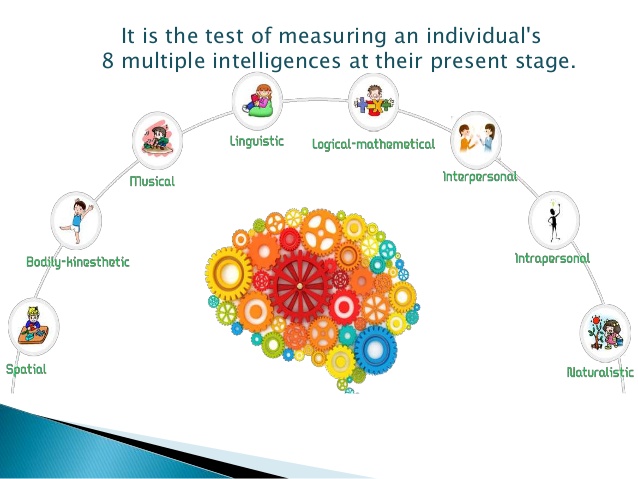
The familiar phrase "IQ score" conjures images of standardized tests and assessments of cognitive ability, often perceived as a fixed measure of intelligence. But beneath this surface lies a complex and evolving field, where modern tests of intelligence utilize sophisticated statistical methods to determine an individual's IQ, prompting ongoing debate about the nature of intelligence itself and the validity of its measurement.
Modern IQ tests, unlike their historical counterparts, are meticulously designed and normed to reflect the cognitive skills deemed essential in today's world. These tests go beyond simple rote memorization, probing an individual's reasoning, problem-solving, and information processing capabilities, and generating scores that are often interpreted as indicators of academic potential, career success, and even social outcomes. However, the very notion of quantifying intelligence, and the implications of these scores, remain subjects of intense scrutiny and discussion amongst psychologists, educators, and policymakers.
The Anatomy of Modern IQ Tests
Modern intelligence testing relies heavily on psychometrics, the science of measuring mental capacities and processes. Psychometricians utilize a variety of statistical techniques to develop, administer, and interpret IQ tests, ensuring they are both reliable (producing consistent results) and valid (measuring what they are intended to measure).
Contemporary IQ tests, such as the Wechsler Adult Intelligence Scale (WAIS) and the Stanford-Binet Intelligence Scales, are structured around a hierarchical model of intelligence. This model posits that general intelligence, often referred to as "g," underlies a range of specific cognitive abilities.
These abilities are typically assessed through a battery of subtests, evaluating areas such as verbal comprehension, perceptual reasoning, working memory, and processing speed. An individual's performance on these subtests is then statistically compared to the performance of a large, representative sample of individuals of the same age.
Norming and Standardization
A crucial step in the development of any IQ test is the process of norming. During norming, the test is administered to a large, diverse sample population, and the results are used to establish a baseline distribution of scores. This allows test developers to create standardized scores, where the average score is set at 100, and the standard deviation is typically 15 points.
This means that approximately 68% of the population will score between 85 and 115, while about 95% will score between 70 and 130. A score significantly above or below this range may indicate exceptional cognitive ability or intellectual disability, respectively.
It is important to note that normative data must be regularly updated to account for generational changes in cognitive abilities. This phenomenon, known as the Flynn effect, refers to the observed increase in IQ scores over time. Researchers attribute this trend to factors such as improved nutrition, education, and environmental stimulation.
Interpreting IQ Scores: Context and Limitations
While IQ scores can provide valuable information about an individual's cognitive strengths and weaknesses, they should not be interpreted in isolation. It's crucial to consider the context in which the test was administered, the individual's background and experiences, and the limitations of the test itself.
IQ tests are designed to measure cognitive abilities that are important for academic and occupational success in Western, industrialized societies. They may not accurately reflect intelligence or cognitive abilities in other cultural contexts.
Furthermore, IQ tests are not immune to bias. Cultural differences in language, values, and experiences can influence test performance, leading to disparities in scores between different demographic groups.
Critics argue that IQ tests place undue emphasis on specific cognitive skills, while neglecting other important aspects of intelligence, such as creativity, emotional intelligence, and practical problem-solving abilities. As Robert Sternberg has argued, intelligence is multifaceted and cannot be adequately captured by a single numerical score.
The Future of Intelligence Testing
The field of intelligence testing continues to evolve, driven by advances in neuroscience, cognitive psychology, and statistical modeling. Researchers are exploring new ways to measure cognitive abilities, using techniques such as brain imaging and computer-based assessments.
There is growing interest in developing more comprehensive and culturally sensitive measures of intelligence, which take into account a wider range of cognitive abilities and cultural backgrounds. Some researchers are also focusing on developing adaptive tests, which adjust the difficulty level of questions based on an individual's performance, providing a more precise and personalized assessment of their cognitive abilities.
Ultimately, the goal of intelligence testing should be to provide individuals with valuable information about their cognitive strengths and weaknesses, helping them to make informed decisions about their education, career, and personal development. As intelligence is a dynamic and multifaceted construct, its measurement should continue to evolve to reflect the latest scientific understanding and address the ethical concerns surrounding its use.

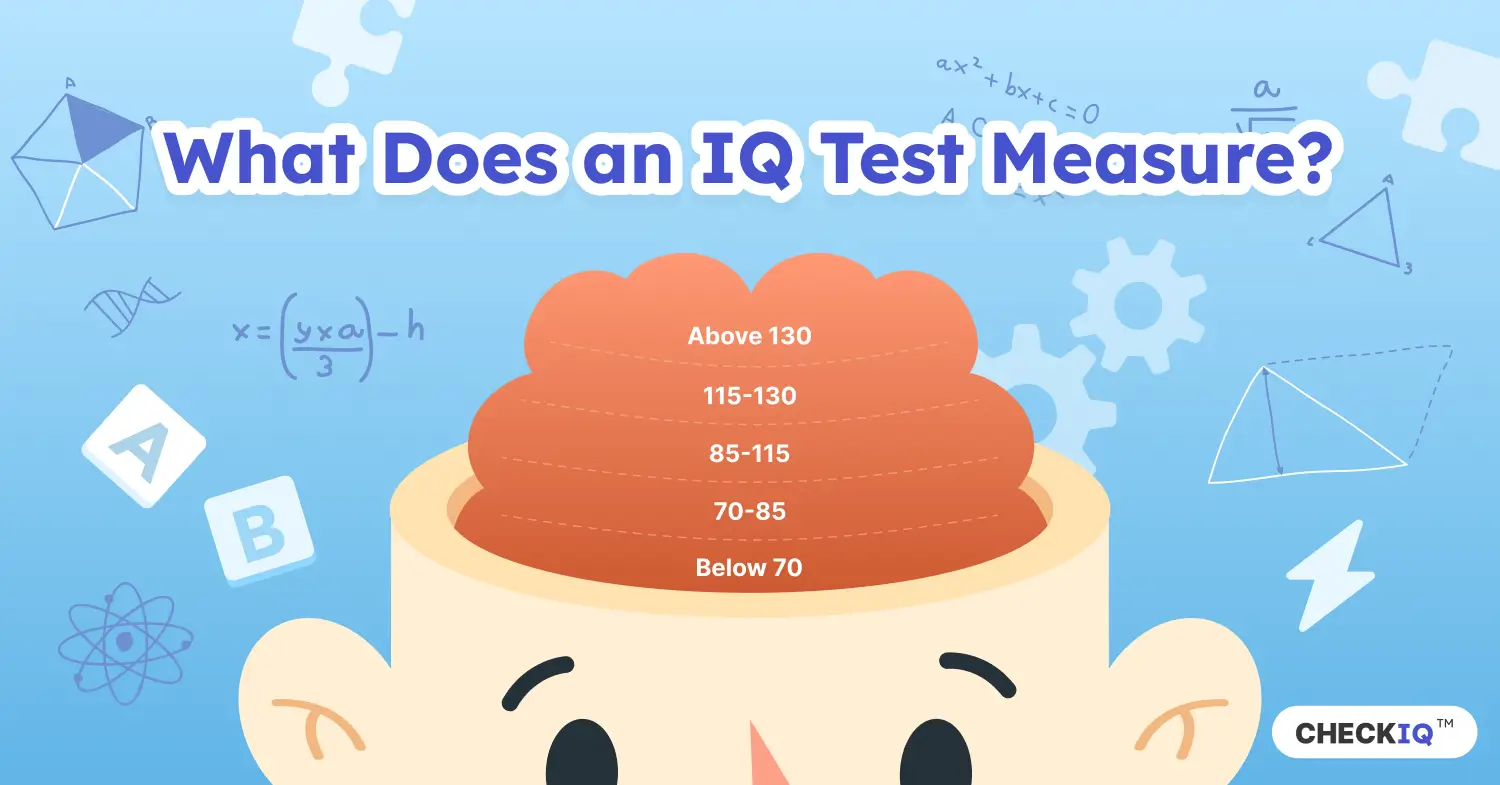
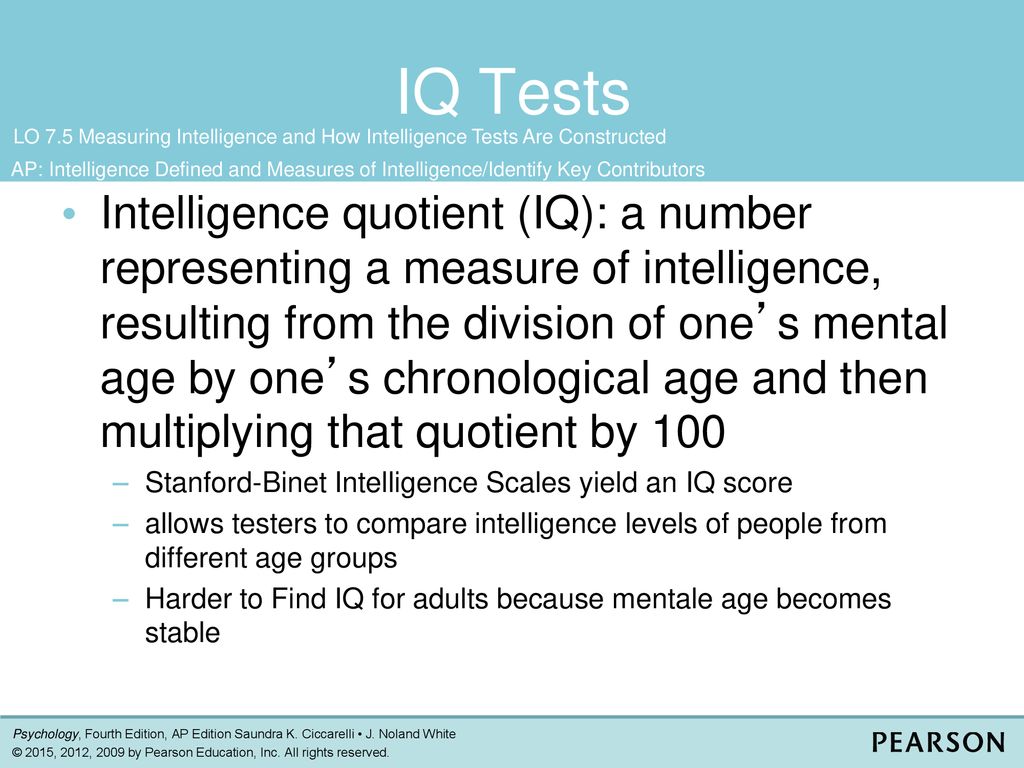


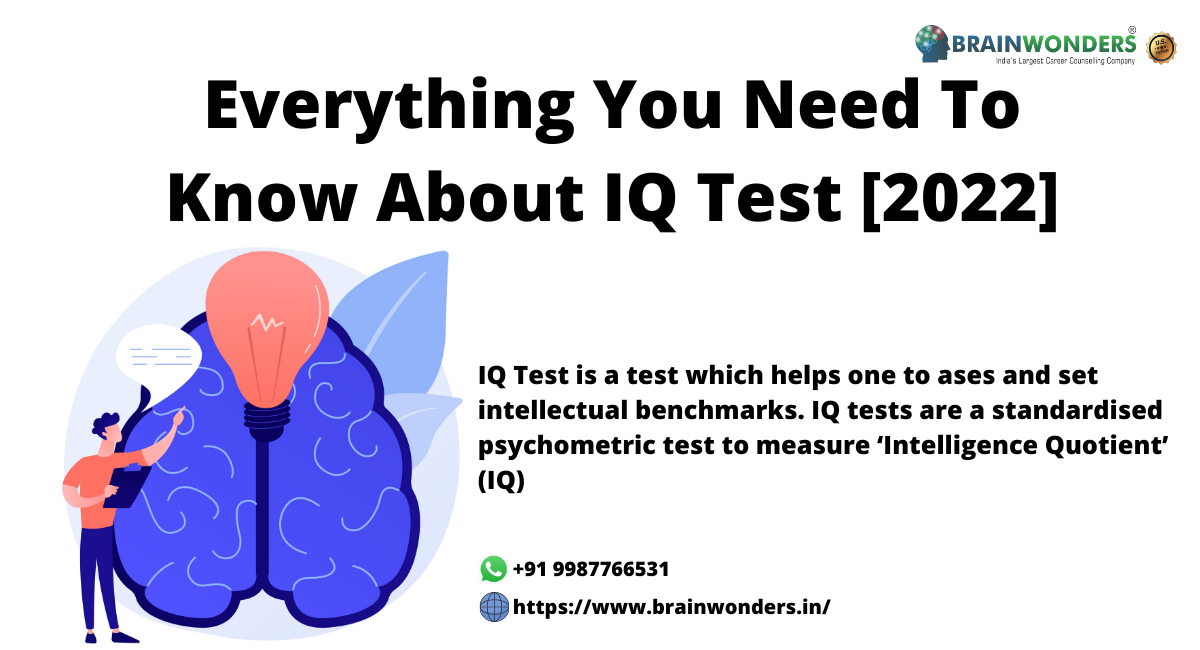
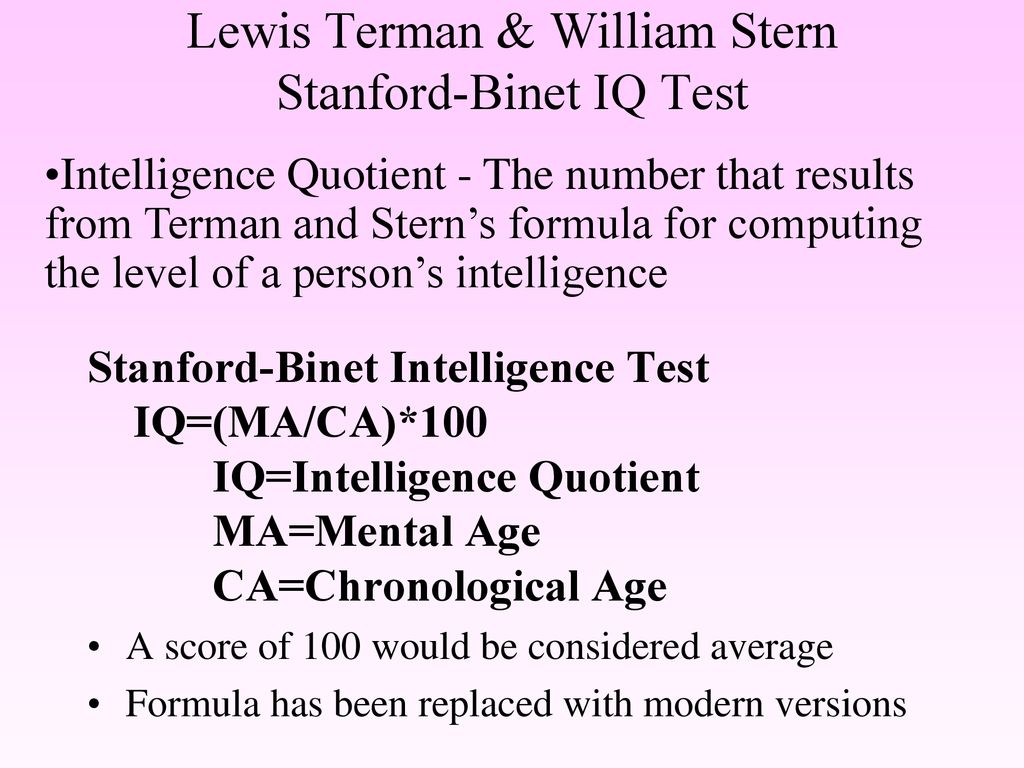
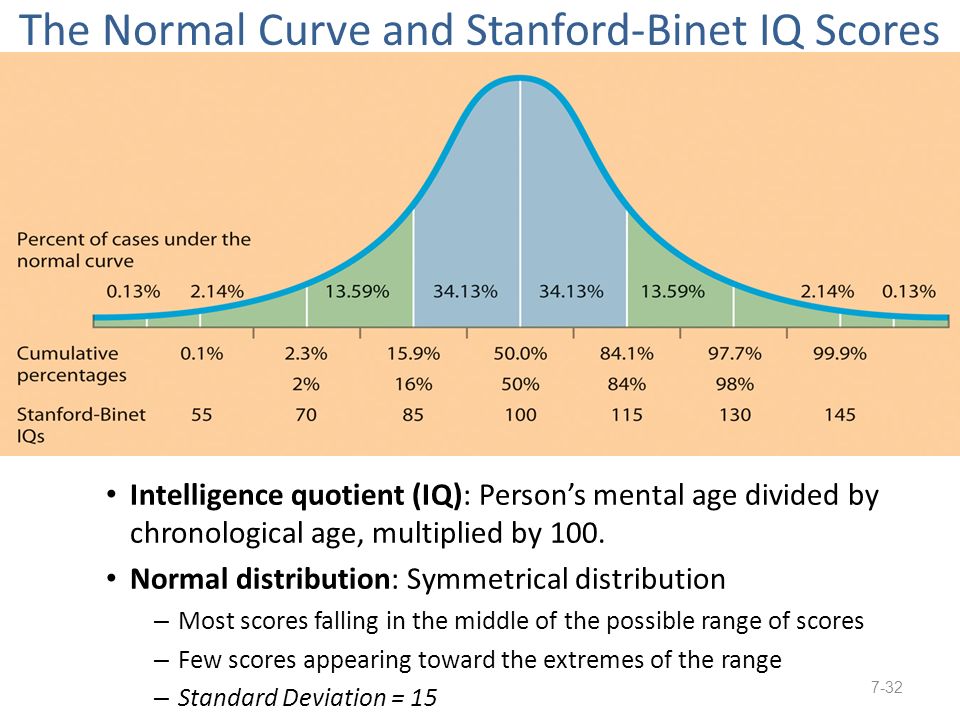
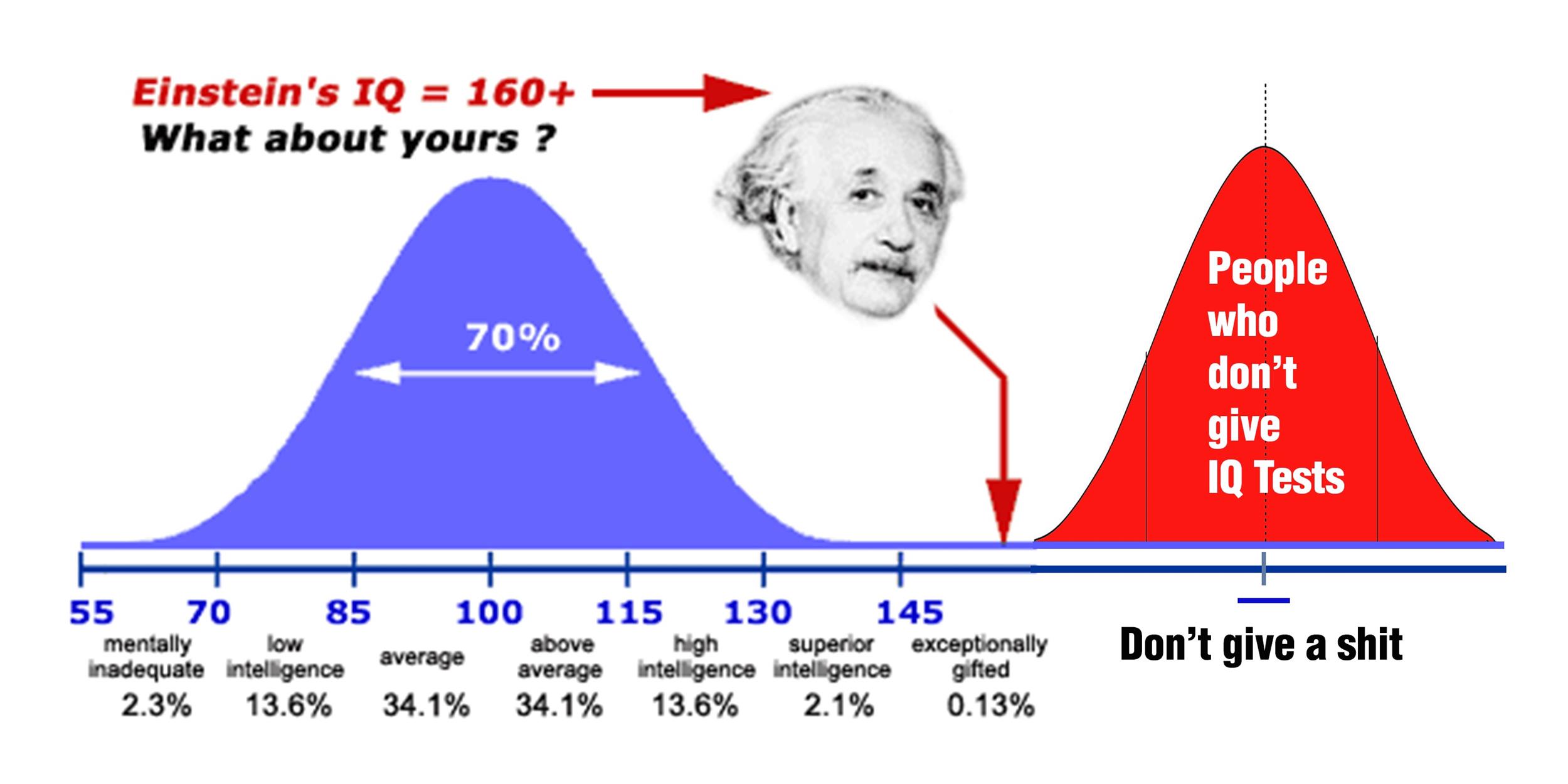


/GettyImages-1009465514-5bf1e681c9e77c00264870f6.jpg)
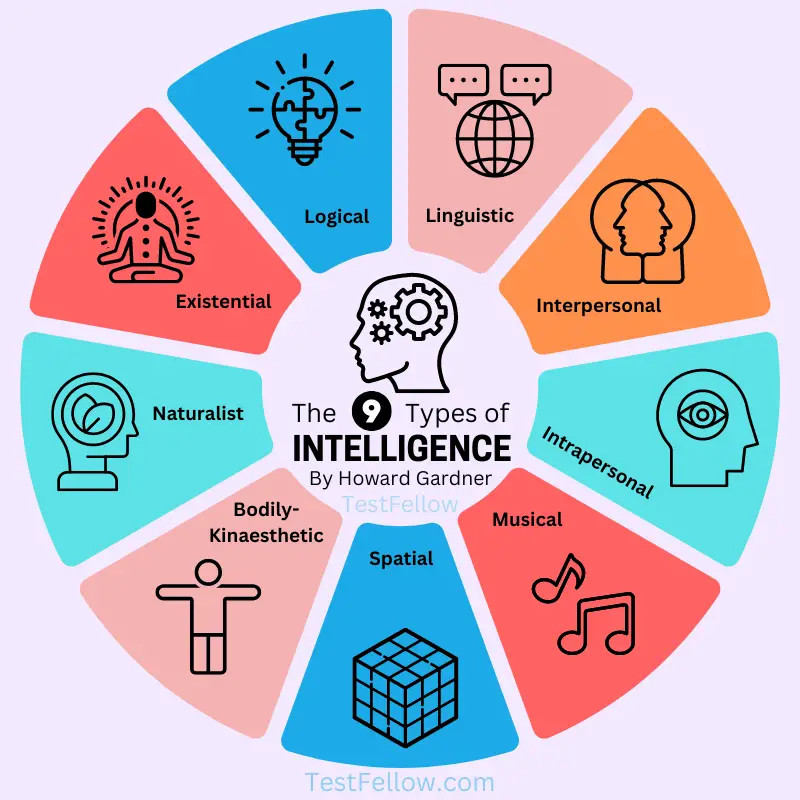
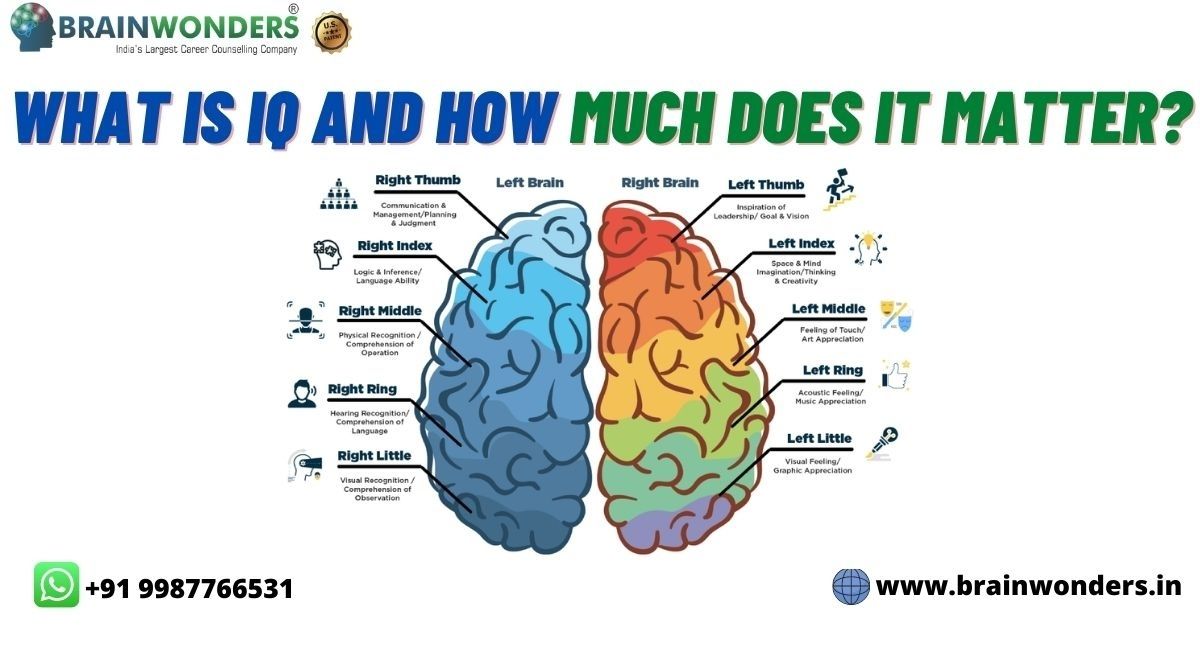
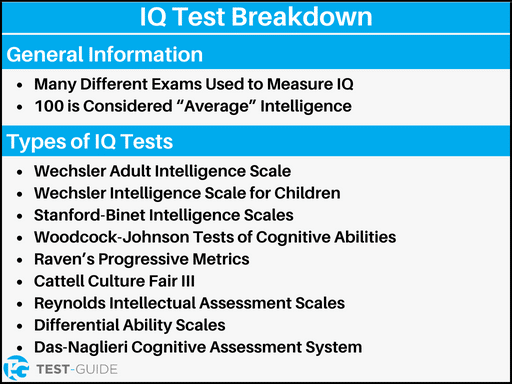
.jpg)


